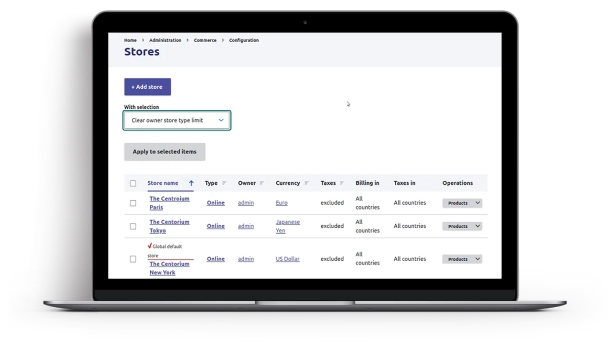Case Study on Designing and Developing a Scalable, Customizable and Secure Platform for Multiple Sellers and Products

Online marketplaces have completely transformed the e-commerce business model. In comparison to a retailer-specific online store, a marketplace platform aggregates products from a wide array of sellers, offering a wide selection and availability to consumers. This is where Attico's Cases come in! We bring to you the perfect solution for creating an e-commerce marketplace platform.
The main challenge for Attico was to design and develop a platform that would meet the client’s requirements while also being scalable, flexible, and customizable. Attico needed to ensure that the platform could accommodate a large number of sellers and products, while also being easy to use and navigate for both sellers and customers. Additionally, Attico needed to ensure that the platform was secure, reliable, and could be easily integrated with other systems and technologies.
The client’s goal was to create an online marketplace that would enable them to expand their product offerings and generate additional revenue streams. They wanted to create a platform that would be easy to use for both sellers and customers, and that would allow them to offer a wider range of products than they could sell on their own.
To meet the client’s requirements, Attico designed and developed a multi-seller ecommerce marketplace platform using Drupal Commerce. The marketplace platform aggregated products from a wide array of sellers. Sellers can open accounts on the site, create and sell their own products. The product catalog is store-specific. The site lists multiple stores, each with their own products. Products are grouped into carts/orders per store. To implement this model we used two additional contributed modules: Commerce Marketplace and Commerce Store Gateways.
Drupal Commerce is a solution for creating ecommerce sites from scratch or adding ecommerce features of any complexity to existing sites. It is free and open-source, like any other contributed Drupal module. However, it works like a full-fledged ecommerce framework that covers all the needs of an online store: product catalog, cart, checkout, shipping, orders, and so on.
Drupal Commerce 2.x is the version for Drupal 10/9/8. Drupal Commerce 2.x comes with an impressive pack of out-of-the-box submodules that show its capabilities:

There is also an ocean of add-on free contributed modules that extend Drupal Commerce 2.x features endlessly.
One of the biggest new concepts in Commerce 2.x for building a marketplace is Stores.
Stores represent billing locations, and were made to cover these two primary use cases:
One seller that has one or more locations (Multistore mode)
The same product catalog is used for all stores. Customers always belong to a single store, usually based on their billing address. This is useful if you wish to sell specific products to different countries, for example.

Stores are content entities. They contain the following information:

Commerce Store Domain contributed module adds a Domain field to stores. It then uses this domain to resolve the current store. This allows de.mystore.com to represent the German store. Products are published per-domain, and the current store context is determined through a pluggable system that lets you determine when to use something other than the site's default store. Drupal's language can also be configured to be negotiated by domain. This allows for one Drupal Commerce site and support for multiregional stores with their own domain.